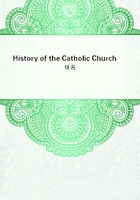
第66章
The severity of the measures taken by Louis XIV. led to new rebellions, which were suppressed with great severity. Finally in 1685a royal proclamation appeared announcing the revocation of all the privileges granted to the Huguenots and more particularly all those contained in the Edict of Nantes (1685). The churches which they had built recently were to be destroyed, their religious assembles were forbidden, and their clergy were offered their choice between submission to the Church or exile. The prime minister Louvois sent soldiers to enforce this proclamation, and the unfortunate Huguenots were treated with great harshness and cruelty. Many of them, unwilling to change their religion and unable to endure their hard lot at home, left the country and sought refuge in England, Germany, Denmark, and Holland. The revocation of the Edict of Nantes was not due to the religious zeal of Louis XIV. or of his ministers. Indeed at the very time that Louis XIV. was engaged in dragooning the Huguenots into the Catholic Church he was in bitter conflict with the Pope, and was committed to a policy that seemed destined to end in national schism.
Some of the French bishops, notably Fenelon, disapproved of this attempt at conversion by violence, and Pope Innocent XI., having no representative in Paris at the time, instructed his nuncio at London to induce James II. of England to bring pressure to bear on Louis XIV.
to favour the Huguenots.[11] Several times during the reign of Louis the Calvinists rose in arms to defend their religion but without effect. After his death the decrees against them were not enforced with much severity, but it was only in 1787 that a measure of almost complete political equality was granted to them by Louis XVI.
----------
[1] Lefranc, /Les idees religieuses de Marguerite de Navarre/, 1898.
[2] Thomas, /Le Concordat de 1516/, 3 vols., 1910.
[3] Forneron, /Les Ducs de Guise/, 1877.
[4] De Ruble, /Antoine de Bourbon/, 2 vols., 1881-2.
[5] Marcks, /Gaspard von Coligny/, 1892. Delaborde, /Gaspard de Coligny/, 3 vols., 1879-83.
[6] De Ruble, /L'assassinat de Francois de Lorraine/, 1898.
[7] Rouquette, /L'inquisition protestante, Les Saint-Barthelemy calvinistes/, 1906.
[8] On the massacre of St. Bartholomew, cf. De la Ferriere, /La St.
Barthelemy/, 1892. Fauriel, /Essai sur les evenements qui ont precede et amene la St. Barthelemy/, 1838. Bordier, /La St.
Barthelemy et la critique moderne/, 1879. Hanoteaux, /Etudes historiques sur le XVIe et le XVIIe siecle en France/, 1886.
Vacandard, /Etudes de critique et d'histoire religieuse/, 1905.
Id., /Les papes et la St. Barthelemy/ (/Rev. du Cler. Francais/, 1904).
[9] Richard, /La papaute et la ligue francaise/, 1901. De Chalambert, /Histoire de la Ligue sous Henri III. et Henri IV./, 1898. De l'Epinois, /La Ligue et les papes/, 1886.
[10] Caillet, /L'Administration en France sous le ministere du cardinal de Richelieu/, 2 vols., 1863.
[11] Gerin, /Le Pape, Innocent XI. et la Revocation de l'Edit de Nantes/ (/Rev. des Quest. Historiques/, xxiv.).
(c) Calvinism in the Netherlands.
Cramer-Piper, /Bibliotheca Reformatoria Neerlandica/, 1903-11.
Juste, /Histoire de la revolution des Pays Bas sous Philippe II./, 2 vols., 1863-7. De Lettenhove, /Les Huguenots et les Gueux/, 6vols., 1882-5. Gossart, /La domination espagnole dans les Pays Bas a la fin du regne de Philippe II./, 1906. Holzwarth, /Der Abfall der Niederlanden/, 2 Bde, 1865-72.
The Netherlands formed part of the vast territories ruled over by Charles V. For many reasons it was not to be wondered at that the people should sympathise with the great religious revolt in Germany.
They were allied closely with the Germans by blood and language. Like them, too, they looked upon Spain and upon the Spaniards with feelings of distrust. Again, as in other parts of the world, so too in the Netherlands the wealth of the Church had led to grave abuses as well as to a loss of respect for ecclesiastical authority, the latter of which was fostered in the minds of some by the spirit of mysticism that flourished in the land of St. Thomas a Kempis.
Yet, notwithstanding these favourable circumstances, the Reformation made little progress in the Netherlands during the reign of Charles V.
He was a man who understood the people and who respected their rights and privileges. He visited the country frequently, was always ready to listen to their demands, and he took care not to offend their national instincts by a display of Spanish troops or Spanish officials.
Besides, having a freer hand to deal with the new religious movement in the Netherlands than he had in Germany, he was determined to preserve his hereditary dominions from the dimensions and civil strife that had done so much to weaken the empire. He insisted on the proclamation and execution of the decree of the Diet of Worms against Luther, forbade the spread of heretical writings, introduced the Inquisition, and punished with great severity those who were found guilty of attempting to tamper with the faith of the people. But despite his efforts the trouble that had broken out in the neighbouring countries, France and Germany, could not fail to find an echo in the Netherlands, and the views of Calvin and Luther found some support.